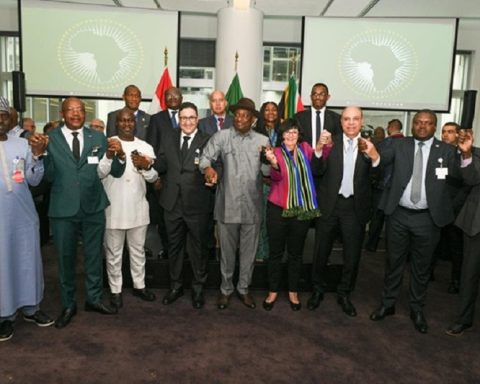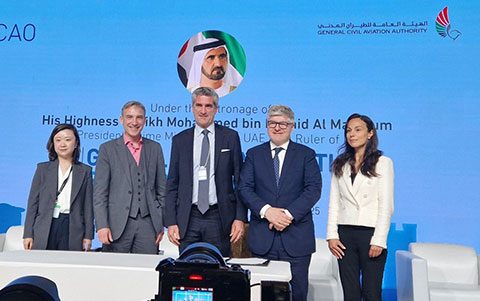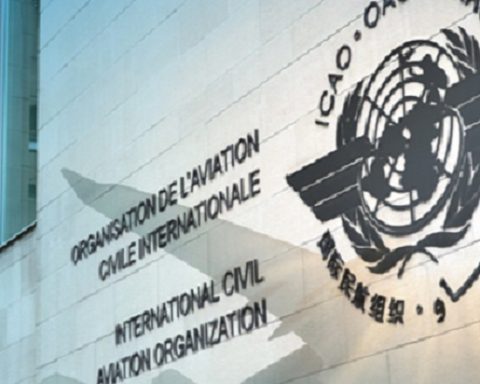The International Air Transport Association (IATA) has high expectations for the 42ndAssembly of the International Civil Aviation Organization (ICAO) holding in Montreal, 23 September-3 October 2025. IATA said that ICAO has accepted 14 working papers authored by IATA covering a wide range of topics for the Assembly’s consideration.
“IATA will be participating in the ICAO Assembly with safety, sustainability and efficiency at the top of our priority list. It is critical that we secure stronger support for SAF production and CORSIA as key enablers of aviation’s commitment to achieve net zero emissions by 2050. Equally, we need agreement to follow the principles and provisions of the Chicago Convention to avoid patchworks of debilitating tax measures and passenger rights regulations. And we must shore-up safety with timely accident reports, mitigations for GNSS interference and preservation of critical radio-frequency spectrum,” said Willie Walsh, IATA’s Director General.
Global standards, many of which are developed by governments through ICAO, are crucial for safe, efficient and increasingly sustainable aviation operations worldwide. These standards are developed with the expertise and input of airline operators worldwide working with ICAO Member States at ICAO. The ICAO Assembly is a once-every-three-year opportunity for States to align on ICAO’s work program as it addresses aviation’s most pressing issues.
“The criticality of global standards to global aviation cannot be underestimated. I am optimistic for the outcomes of this Assembly. Everybody wants flying to be safe, efficient and more sustainable. So, we have a common agenda with governments. Indeed, many of our submissions to the Assembly are simply asking governments to more effectively implement what they have already agreed. The coming weeks in Montreal are essential to set the agenda, but even more important is the following three years of work to achieve what is agreed,” said Walsh.
Regarding Sustainable Aviation Fuel production (SAF), IATA said that “Targets for SAF use set by
the ICAO Conference on Aviation and Alternative fuels (CAAF/3) should be reviewed by states to take into consideration the price-raising consequences of setting mandates without the anticipated increase in SAF production.”
IATA asks States to support IATA’s efforts to create a functioning SAF market, step up economic incentives for fuel producers for SAF production, as well as make timely policy interventions to address anomalies.
CORSIA (Carbon Offsetting and Reduction Scheme for International Aviation)
IATA said that CORSIA was agreed by States at the 39th ICAO Assembly (2016) to be the sole economic measure to address aviation’s global carbon emissions, noting however, that though CORSIA is expected to generate up to $17 billion in climate finance by 2035, “States continue to create or augment aviation taxes and schemes (national and regional) that undercut CORSIA’s credibility, and which do little or nothing to further sustainability.” IATA urges stronger States’ support to CORSIA.
Revisions to Aviation Corporate Tax
IATA also called for States to ignore revision to Article 8 of the UN’s Model Tax Treaty and continue with residency-based taxation for airlines,” since “source-based corporate taxation would generate an enormous additional administrative burden with no additional tax revenue generation unless it results in double taxation. It would also require adjustment of nearly all bilateral air services agreements which follow residence-based taxation.”
According to IATA, in recent years several governments have been considering and implementing consumer protection regulations for air travelers, which, in many cases “have deviated from ICAO’s Core Principles on Consumer Protection which support alignment with global standards (Montreal Convention 1999, for example), respect proportionality and take into consideration exceptional circumstances of mass disruption.
To avoid the current patchwork of regulations that conflict with each other and confuse travelers, IATA wants States to reaffirm and align regulations with ICAO’s Core Principles.
IATA stated further that as the telecoms industry rolls out 5G and eventually 6G services, it is demanding greater allocations of radio frequency spectrum, whereas Aviation require spectrum for many purposes including the critical 4.2-4.4GhZ band for radio altimeters. “Some configurations for 5G rollouts (particularly in the US, Australia and Canada) have created unacceptable risks to aviation safety in the vicinity of airports which required mitigation measures (reconfiguration of 5G antenna as airlines retrofit with interference-proof avionics).”
IATA asking States to protect safety and strengthen coordination among telecom and aviation regulators to ensure safety of flight.
Further, ICAO Annex 13 requires that States file a final accident report within a year of the accident’s occurrence; and when this is not possible, updates must be published. IATA worries that only 57% of accidents between 2018 and 2023 have a publicly available final accident report. While this deprives aviation of a vital source of safety information, IATA wants States to complete accident reports complying with Annex 13, and calls for capacity building building to States with insufficient accident investigation resources.
IATA called on States to ensure better coordination between military and civil aviation authorities to provide airlines with timely risk information to mitigate the risk caused by rising incidents of GNSS jamming and spoofing in areas near conflict zones.
Noting the current issues related to aircraft mandates, IATA wants States to “create a mechanism to set realistic applicability dates for aircraft mandates, with active monitoring and flexibility to adjust timelines if global disruptions occur.”
Pilot Age Limits (multi‑pilot international flights)
IATA also explained that, Under ICAO Annex 1 (pilot licensing rules), airline pilots on multi‑pilot international operations must retire at 65. IATA, however, wants States to approve the increase to age 67 for multi‑pilot international operations, with the “one‑under‑65” rule maintained, existing medical frequency preserved (e.g., six‑monthly over 60), and no change to the single‑pilot limit, with medical licensing, operations and oversight system aligned with safety management best practice.
The crucial ICAO Triennial Assembly allows the aviation industry set robust goals to guide the safety, sustainability and excellence of the aviation industry over the next three years,




